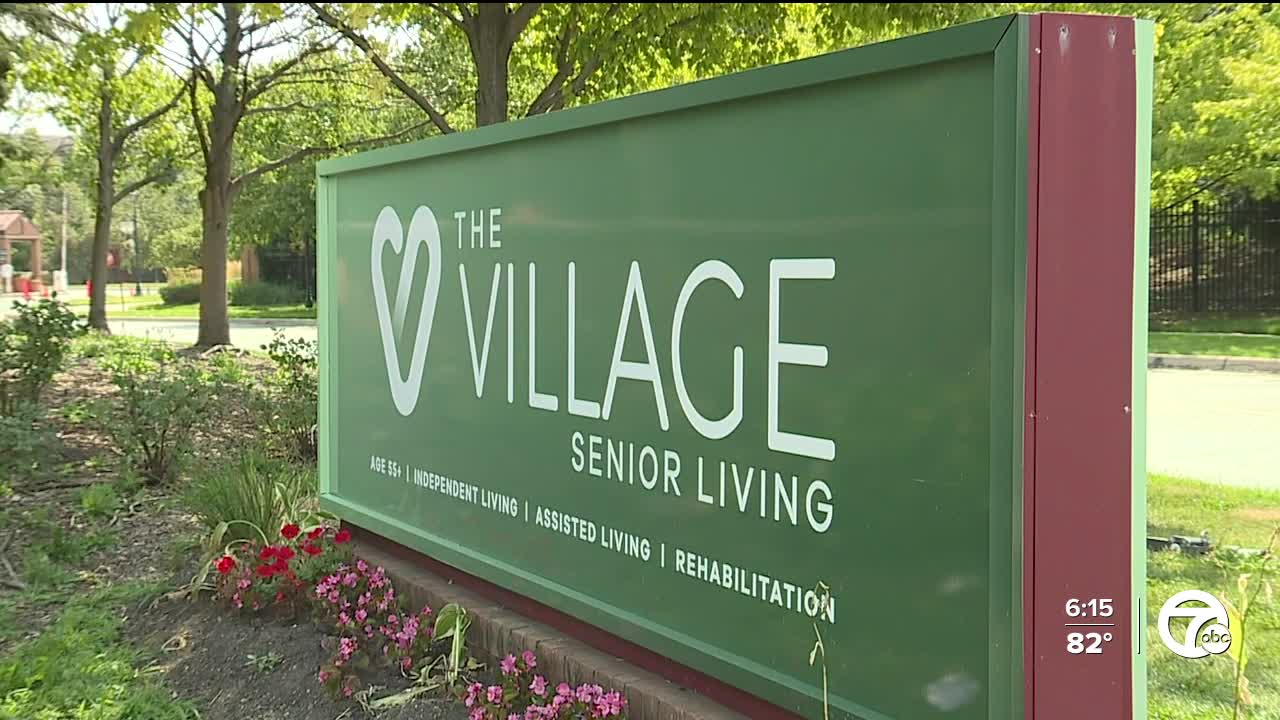DEARBORN, Mich. (WXYZ) — Wayne County Health, Human, and Veterans Services confirmed water tests revealed the presence of Legionella bacteria in Allegria Village’s water system.
Watch Randy Wimbley's video report:
This, after two residents at the Dearborn retirement community contracted Legionnaires’ disease in June and July and later died. It remains unclear if Legionnaires' disease was the direct cause of death.
PREVIOUS REPORT: Officials suspect Legionella bacteria at Dearborn retirement facility after two die
"I can only imagine that as others learn about this problem and as they talk to each other and their attorneys, I would not be surprised at all if there were some sort of class action lawsuit," said a woman who did not want to be identified and is moving her in-laws out of Allegria Village.
The retirement community has implemented emergency measures, including removing aerators from faucets in the affected building and urging residents not to use showers or other high-risk water sources. Staff members have provided residents with refillable one-gallon jugs for cooking, cleaning, and bathing.
"Can't go to the toilet, can't shower. I don't like all of this," said Marcus Pringle, who has lived at the village for the past four months, and expressed his desire to leave. "I don't like it and I'd just as soon move somewhere else."

According to a source, Allegria Village is now flushing and treating water lines with chlorine and plans to retest the system for the presence of Legionella bacteria. It could be another two weeks before residents at the affected building can use the water if new test results come back clear.
Some family members are taking additional precautions.
"We've had her tested independently for Legionnaires' disease. We didn't feel confident that—they have not made any attempt to test the residents that are here for Legionnaires' disease. That should've been done right away," said the woman who is relocating her in-laws.
Allegria Village provided the following statement:
Allegria Village continues to take the Legionella concern seriously, and we are continuing to work with the local health department, the State of Michigan, and IWC Innovation. Final results for Legionella testing were available from the laboratory on Tuesday, August 5th. Those results were shared with the IWC Innovation team as well as the local health department and the State of Michigan on August 5th.
On Tuesday August the 5th we completed a mini-in-house news cast to share the results of the test and to confirm our plan of action.
Today, August 6th, the IWC team is onsite to complete a chemical sanitization of the Bridgeside Place water system.
IWC also made time to meet with our residents at a town hall to answer any questions they have about Legionella, the treatment being performed, and the next steps.
Dr. Avani Sheth, Chief Medical Officer and Division Director of Clinical Care Services at Wayne County Department of Health, Human & Veterans Services, said the department "is actively working with Allegria Village and the Michigan Department of Health and Human Services to investigate cases of Legionella pneumonia among residents of Allegria Village."
The health department is supporting Allegria Village as they implement immediate response efforts, including "disinfection and remediation of affected areas, temporary water restrictions and provision of alternative water sources where necessary, ongoing environmental testing to ensure effectiveness of remediation efforts, and educating residents and staff on seeking prompt medical evaluation if they develop symptoms."
According to the health department, Legionnaires' disease is a type of pneumonia caused by Legionella bacteria, which is found naturally in freshwater environments but becomes a health concern when it enters and grows inside water systems. People can contract the disease by breathing in small droplets of water containing the bacteria.
The disease is not typically spread from person to person, and most healthy individuals do not become infected after exposure. Those most at risk include adults over 50, smokers, and people with weakened immune systems or chronic lung conditions.
————————————
This story was reported on-air by a journalist and has been converted to this platform with the assistance of AI. Our editorial team verifies all reporting on all platforms for fairness and accuracy.












